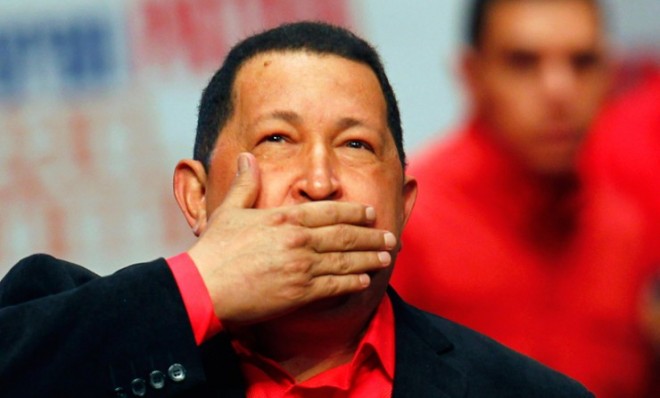Venezuelan President Hugo Chavez dies
The controversial leader had been battling cancer since 2011


A free daily email with the biggest news stories of the day – and the best features from TheWeek.com
You are now subscribed
Your newsletter sign-up was successful
The Associated Press reports that Venezuelan President Hugo Chavez has died at the age of 58, following an on-again, off-again battle with cancer that had destabilized Venezuelan politics over the past couple of years.
Since coming to power in 1999, Chavez has been a forceful and provocative voice for socialist policies in Latin America, emerging as the de facto leader of a leftist bloc that sought to counter the influence of the U.S. in the region. However, despite showing some authoritarian tendencies, Chavez enjoyed strong support within his own nation, and was handily re-elected to a fourth term in 2012 in what was considered to be a free and fair election.
In particular, Chavez's policies of redistribution and nationalization of oil assets endeared him to Venezuela's working class, though many economists say Venezuela's state-driven, oil-centric economy has taken away resources from other areas that are badly in need of development.
The Week
Escape your echo chamber. Get the facts behind the news, plus analysis from multiple perspectives.

Sign up for The Week's Free Newsletters
From our morning news briefing to a weekly Good News Newsletter, get the best of The Week delivered directly to your inbox.
From our morning news briefing to a weekly Good News Newsletter, get the best of The Week delivered directly to your inbox.
Indeed, it remains to be seen whether Chavez's ruling party can hold onto power without its charismatic leader, in the face of growing middle-class resentment toward Chavez's rule. According to Venezuela's constitution, an election must be held within 30 days of a president's death, though Chavez's allies in recent months have suggested alternative interpretations of that provision, suggesting that the country could be headed toward a stretch of political uncertainty. If the election were held today, it would likely pit Vice President Nicolas Maduro against Henrique Capriles Radonski, who ran against Chavez in the last election.
Maduro has yet to announce a new election, though he so far appears to have the support of Chavez's ministers, as well as the chiefs of the army.
More broadly, it also remains uncertain what impact Chavez's death will have on the region as a whole. According to The Wall Street Journal, "The biggest potential loser could be Cuba, which depends on Venezuela for an estimated $5 billion a year in virtually free oil — a windfall that helps the cash-strapped Communist regime survive." Several other Latin American countries that have followed Chavez's lead also depended on his largesse, prompting concerns that his death could have a destabilizing, ripple-like effect across the region.
RELATED:
A free daily email with the biggest news stories of the day – and the best features from TheWeek.com
Ryu Spaeth is deputy editor at TheWeek.com. Follow him on Twitter.
-
 Ex-South Korean leader gets life sentence for insurrection
Ex-South Korean leader gets life sentence for insurrectionSpeed Read South Korean President Yoon Suk Yeol was sentenced to life in prison over his declaration of martial law in 2024
-
 At least 8 dead in California’s deadliest avalanche
At least 8 dead in California’s deadliest avalancheSpeed Read The avalanche near Lake Tahoe was the deadliest in modern California history and the worst in the US since 1981
-
 Political cartoons for February 19
Political cartoons for February 19Cartoons Thursday’s political cartoons include a suspicious package, a piece of the cake, and more